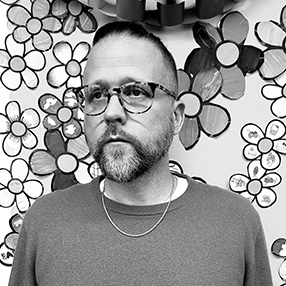If Night You Were a City
I would return to you in a jacket of gold leaves
drawn tight
against the city wind
whipping around corners through button holes over
cobbled streets park lanes
cordoned-off barbarian herds
of steel and glass and concrete ground zero for crowds
of absence. We’d lift off beyond the brick
toward choked stars, moons outshined by neon
and by anxious day, moons perched on dark spires
golden lions
we’d wrap our naïve wings around
to embrace the artifice of it all
and the reality: the heat here is unbearable
and I miss the need to be warm, that need to look
forward to nights alone with you with no morning on our minds
no time
no need to claw through
restaurants packed with bridge and tunnel drunk
on the filth and the beauty.
For here
there is no comparison
no autumn as autumn no snow to justify
a hot drink or a fat meal the fish is delicious
and the beer even better but not the same.
Some say the grass
is greener as if it’s law
and more
that I try to recreate
metropolis each time a baobab drops a beetle
to flee every time winter floods the sand
to mute the night—
boats eclipsing the mainland sprawl
trading with another language transformed before my ears:
tell me how you lived
your dream and I will tell you who you are
every night, every single night and with a wingspan
I resurrect in a cold sweat
and off in the distance
there are drums
drums beating the island
like drums and outside the window an unexpected laugh
drums in concert
with the percussive horn
of the ferry to you.
There’s nothing romantic about this
nothing absolute I am reminded of
everything that went wrong everything that went right
and when I wake
if I wake, may the flash not wax
our feathers
may it not melt our wings
Copyright © 2024 by Adam Wiedewitsch. Originally published in Poem-a-Day on January 1, 2024, by the Academy of American Poets.
“Around the time I was writing ‘If Night You Were a City,’ I was trying to learn French by reading The Little Prince. I quote from Fady Joudah’s translation of Mahmoud Darwish’s The Butterfly’s Burden.”
—Adam Wiedewitsch

